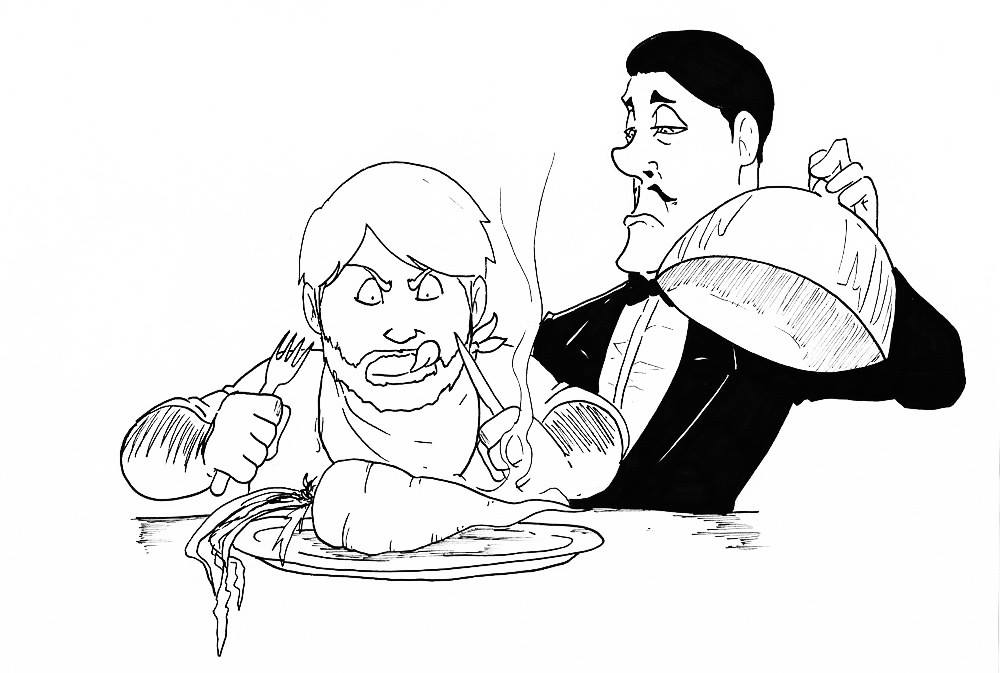Conventional wisdom tells us that most of the time, the average new year’s resolution will never make it into February. Given that the most popular resolution across the Western world last year was to eat less meat, logic would suggest that the carnivorous population would be fully restored as we head into March. But it isn’t. Vegetarian, and increasingly ‘flexitarian’, diets are proving to possess notable staying power.
A ‘flexitarian’ diet is one that attempts to cut down on meat but is still, well, flexible on the issue. The occasional hamburger won’t be a problem, but the overall focus of the diet is on plant-based alternatives. And it’s precisely this diet that several new studies are recommending as a countermeasure against the environmental damage caused by global supply chains of meat.
A report released late last year led to headlines suggesting that worldwide meat consumption would need to be reduced by as much as 90% in some countries. A separate report from the Lancet medical journal came to similar findings, calling for drastic changes to food production, and our diets, in order to avoid ‘catastrophic damage to the planet’.

This damage is largely caused by the explosion of the meat production industry in the age of globalisation. Scientists estimate that 18% of all global greenhouse gas emissions are caused by livestock farming. For context, that is more than all emissions from ships, planes, trucks and cars put together.
Happily for the authors of the report, their messages appear to be seeping through into the popular consciousness. In Britain 542,000 people claim to be vegan, a rise of 350% since 2006. In the US, 6% of the population is vegan, up from less than 1% in 1971. And as many more people cut down on meat in their diets, companies are beginning to recognise plant-based food as a ‘boom market’.
Tamiya Kabatoff from Vancouver switched to a vegan diet at the start of the year and hasn’t looked back. “I think some people may think I can only eat salad, or grilled vegetables, but there are so many yummy alternatives out there that a lot of restaurants are adding to their menu”.
And there are signs that the food industry is starting to take note of the cultural changes. Tamiya adds, “there is a shift happening where vegans and vegetarians are beginning to be the norm in some areas, and I think the food industry is adapting really well to that shift. Living in Vancouver there are so many restaurants that are either only vegan, or have a delicious vegan option”.
At the start of the year, a minor culture war played out in the UK following the release of a ‘vegan sausage roll’ by a popular high street baking chain. The chain, Greggs, tweeted a video to promote their new product which was then seized upon by political commentators who bemoaned the ‘political correctness’ and ‘virtue signalling’ that must be behind such a product. But the vegan sausage roll has proven a commercial success. Despite initially only being available for ‘Veganuary’ (a trend whereby you are challenged to eat only vegan food for the month of January) the company has recently announced that the vegan sausage roll’s launch was so successful that it will be available all year round.
Addison Capper, an Editor who lives in London, is fairly typical member of the emerging new flexitarian market. He explains the roll’s success: “a month or so before it launched I tried a vegan month after being a staunch meat-eater for pretty much ever. But finding on-the-go vegan snacks that isn’t fruit is HARD, especially when you fancy something a little dirty. The Greggs vegan sausage roll hit that spot.”.
And the trend away from meat-eating isn’t confined to the West. Nowhere in the world is vegetarianism more popular than in India, where 38% of the population eats a meat-free diet. One country seemingly immune to the trend, however, is China.
China’s rise in meat consumption has broadly risen alongside the country’s rapid economic growth, but the percentage of vegetarians remains at around 5%. By contrast, 11% of Australians eat a meat-free diet.
Morgan Shafer, an English teacher in Hong Kong, is finding the switch to a meat-free diet more difficult.
“There aren’t a large amount of restaurants that cater [to vegetarian diets] here. Plenty have veggie dishes but still make things with meat stock, and what is available is very expensive to buy”.
Experts fear that unless China (population 1.4 billion) changes course, there may be little hope of mitigating the environmental impacts of meat production.
What is clear, however, is that veganism is no longer a niche sub-culture. The trend is growing across the world, and the potential effects on the environment will be welcomed by many.
What remains to be seen is whether the plant-based revolution will amount to more than being too little, too late.
